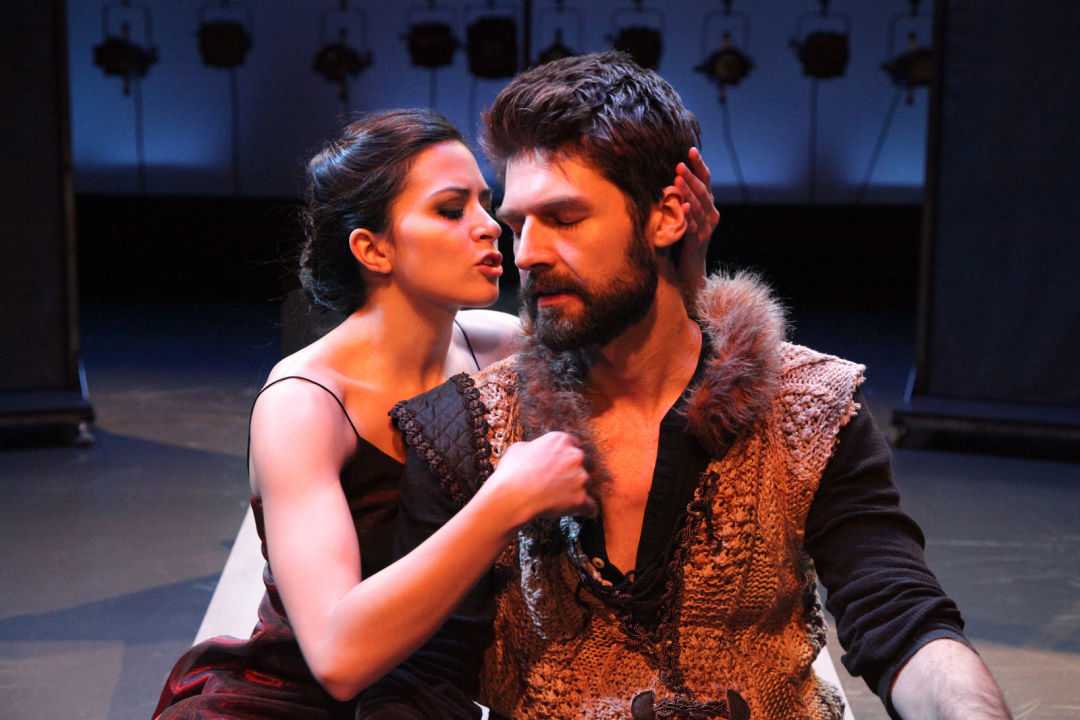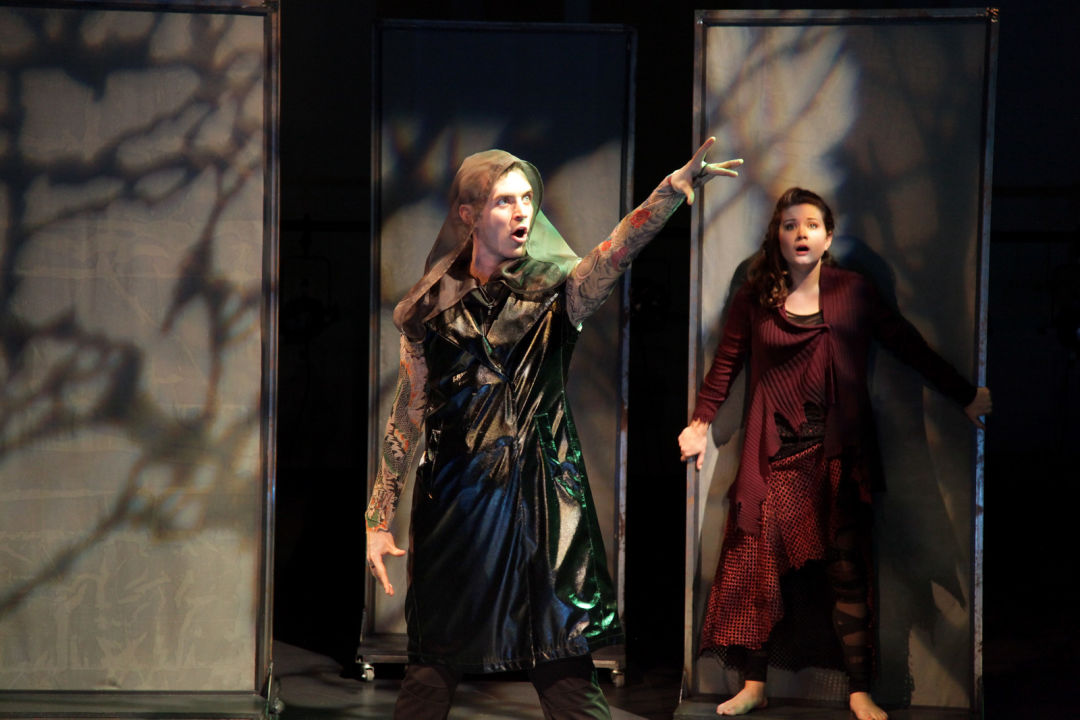FSU/Asolo Conservatory's Macbeth

Danielle Renella and Brett Mack in Macbeth. Photo by Frank Atura
It’s part of their training for FSU/Asolo Conservatory acting students to study the works of Shakespeare and then bring the playwright’s language to the stage, as they are doing with the current production of Macbeth at the Cook Theatre.
But the cast and their directors (in this case, Shakespeare specialist Jonathan Epstein) rarely present these classics in a traditional or conventional way. An earlier production of As You Like It, for example, had the performers dangling from circus silks as they delivered their dialogue—an often fun and colorful way to act out the romantic comedy.
With Macbeth it’s more a matter of keeping the story timeless by not setting it necessarily in the 11th century, although the action does still take place in Scotland (there’s even some Scottish dance thrown into Act II for good measure). Rather, through certain contemporary references (some apropos, some perhaps not) and through Becki Leigh’s costume design (boots, cargo pants and occasional armorlike suggestions for the men, more contemporary togs for the women), we are meant to see the tale of war, love, ambition and murder as one that spans the centuries.
Macbeth (Brett Mack) is first spoken of by others before we actually see him, and his reputation is as a brave soldier who has aided his king, Duncan (Michael Fisher). While this sounds well and good, trouble is brewing at home for the thane, whose wife (Danielle Renella) we glimpse first, mourning over a small coffin for the child she has lost. And when the three Wayward Sisters (not named as witches here) greet Macbeth with prophecies of great glory—including the crown itself—we are left to ponder how much of Macbeth’s murderous ambition is spurred by their words, and how much already existed within him ready to strike.

Rob Glauz as Hecate and Kelly Elizabeth Smith as a Wayward Sister. Photo by Frank Atura
In any case, his lady wife is there to add fuel to the flames; after her loss, she’s ready to fight back against a cruel world, and encourages her husband using their love, sexual attraction and yes, occasional nagging to get the job (killing Duncan) done. That’s only the first heinous act in assuring that nothing threatens Macbeth’s kingship, from disposing of his friend, Banquo (Brandon Maldonado), whom the witches have seen as the progenitor of future kings, to the truly horrific murders of the Macduff family.
In this production, naturally, all of the actors are young, which actually works well in most instances, especially when it comes to the relationship between the Macbeths. Mack and Renella have some chemistry together to help make their decisions plausible in light of their situation. Jillian Courtney, Kelly Elizabeth Smith and Jessie Taylor are strong in their portrayals of the Wayward Sisters, screeching out their maledictions (remember to use throat spray, ladies).
Jacob Sherburne as Seyton/the porter, a combination of roles (not all minor characters appear here in this abridged version of the play) provides some typically Shakespearean comic relief after the bloody murder of the king, which takes place offstage, although some of the jokes work better than others.
That’s true of Chris McVicker’s set design elements as well, which consist of several partitions the cast moves around to create certain spaces or use as screens behind which we can see shadows of swordfights (well staged) or ghostly appearances. At times the partitions are effective; at others, their movement merely feels distracting.
In general, the actors acquit themselves well when it comes to grasping the meaning of Shakespeare’s words and helping the audience to do so as well. Macbeth continues through March 13; for tickets call 351-8000 or go to asolorep.org.